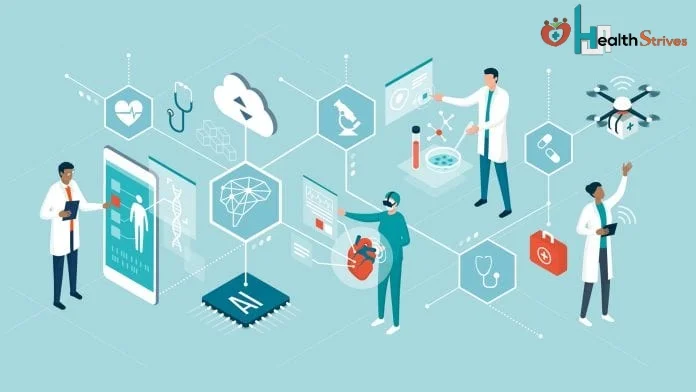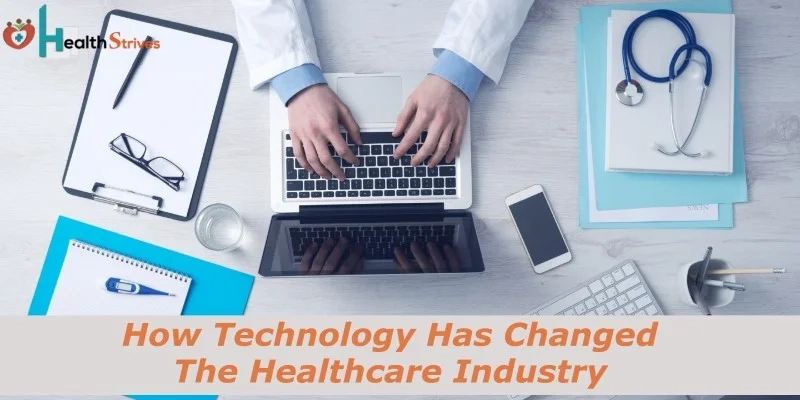How Technology Has Transformed the Healthcare Industry?
In today’s advanced era, technology is evolving immensely and transforming many different sectors. One of the areas where technology is having a huge impact is the healthcare industry. From digital health records and diagnostic tools to telemedicine, patients can now access cutting-edge treatment methods to ease their treatment process and administrative tasks and improve health care. Additionally, the advent of new technology leads to better outcomes as it helps with administrative tasks and enhances the quality of services in healthcare centres.
Among the technology advancements, AI is the most significant and has proved to be a game-changer in the healthcare sector. The use of AI in healthcare is extensive. It is extended to remote monitoring to predict drug efficiency. Stay tuned with us if you’re still confused about how technology impacts the healthcare industry. This guide will explain the facts about the technology and healthcare industry.
6 Facts On How Technology has Transformed the Healthcare Industry
1. Digital Health Records
From dusty to bulk papers, it was quite complicated to maintain records in the files. But digital healthcare records made the storing, managing, and transferring of data easy and quick. Digitalization of the healthcare records helps healthcare specialists to more focus on their clinical practice and better care of their patients. Moreover, it reduces the overheads of the staff and helps to maintain a precise record that helps both the clinical department and patients as well.
2. Improved Patient Care
Technology has taken the place of various manual tasks like maintaining patient records and provides facilities like telemedicine, real-time tracking, etc that help to improve patient care. Since EHRs (Electronic Health Record) have developed, they help physicians to easily access the complete history of the patients and make the most well-considered decisions. Some advanced technology like video chatting has increased the patient-doctor interaction and made it easier for the doctors to provide an instant prescription.
3. Better Return on Investment
No industry can stand without better ROI and so does the healthcare industry. Besides better patient care, and maintaining digital records, revenue is another major concern for healthcare providers. In order to provide better patient satisfaction and earn more revenue, healthcare institutes require a huge backend staff who can ensure billing is done properly and all the medical codes are up-to-date. While there is no space for mistakes, opting for medical billing outsourcing services makes more sense than taking a risk with manpower.

4. Smooth Hospital Operation
With medical technology is getting more and more advanced, healthcare institutions are expanding their size and capacity. The key to the hospital’s performance, the Medical staff service department is often overlooked. Because physicians credentialing is critical to healthcare institution growth, Medical technology has designed medical credential services. Today, many forward-thinking hospitals are outsourcing these services for uninterrupted operations.
5. Instant Access to Information
Since the digitalization of data has come into existence, physicians and other paramedical staff can access hundreds of thousands of medical research papers and other helpful data at just one simple click. Fast access to healthcare information is somewhere imperative for the healthcare industry as it enables health specialists to learn more about disease and treatments to provide quality care and precise information to the patients.
6. High-end Data Protection
Before the digitalization of the data, doctors and other healthcare staff used to store data and sensitive patient details on the papers which were quite risky. Thanks to electronic health records that allow doctors to store patient’s data digitally and reduces the need for files. These EHR systems consist of various digital summaries like diagnosis, lab report, surgical interventions, prescription, and many other details related to patient health issues that are efficient and more secure and also reduce the chances of breach of confidentiality.
Technology is something that is helping the healthcare industry on a large scale. It doesn’t only make the healthcare process more efficient but also helping physicians, nurses, and other paramedical staff in boosting their potential. Today, more and more healthcare institutes have already adopted various latest tools to provide next-level services and utmost satisfaction to the patients. Whereas many are planning to incorporate it in their organization to increase the revenue. It is effectively a helping hand for the healthcare industry today and continues to do so in the future. Altogether, technology is an investment healthcare industry that is required to streamline processes, reduce overheads and expenses, improve organization revenue, and most importantly, provide better quality care.

